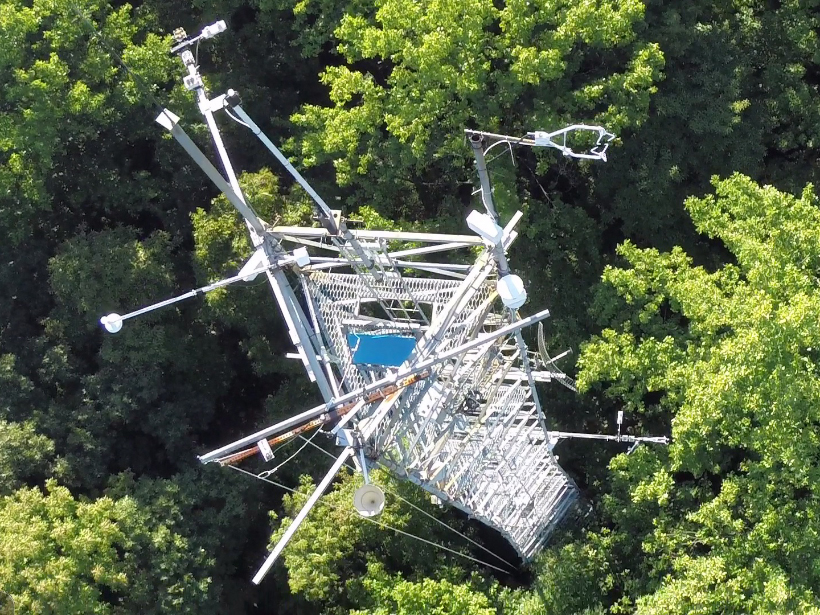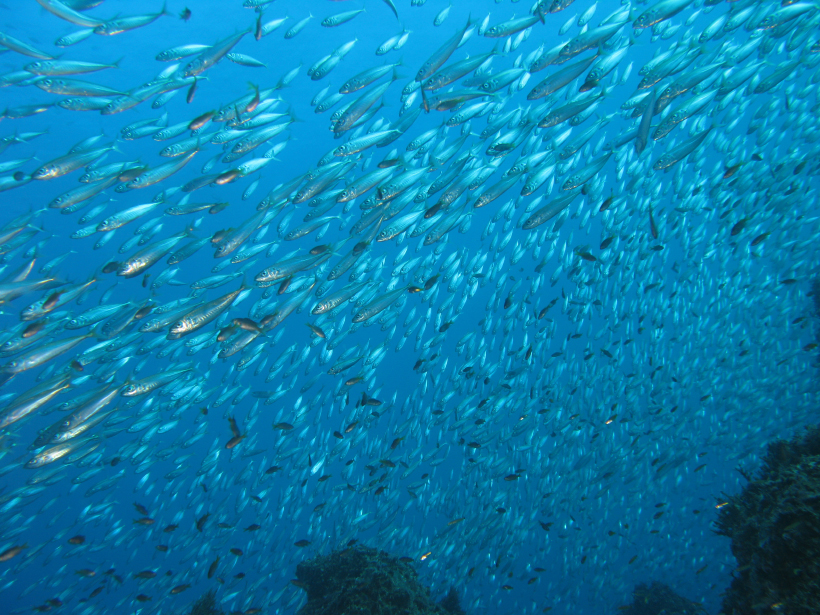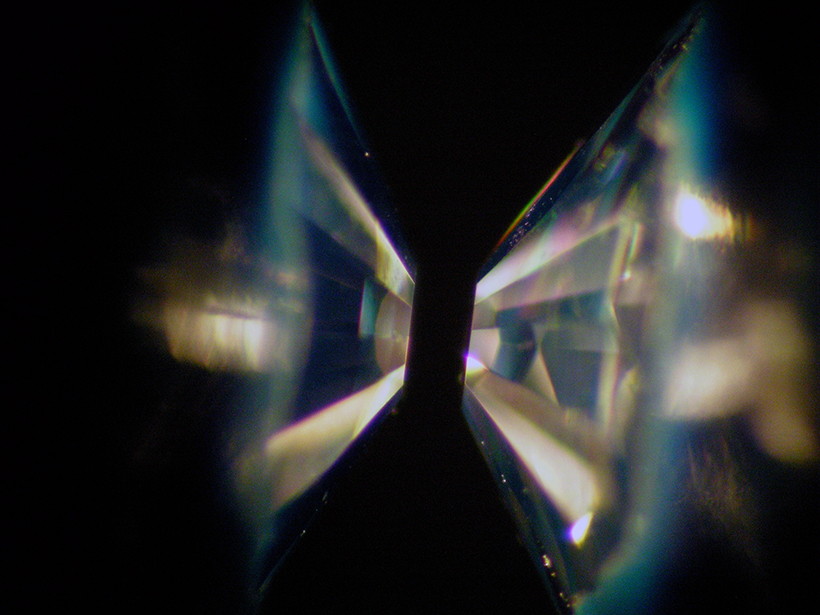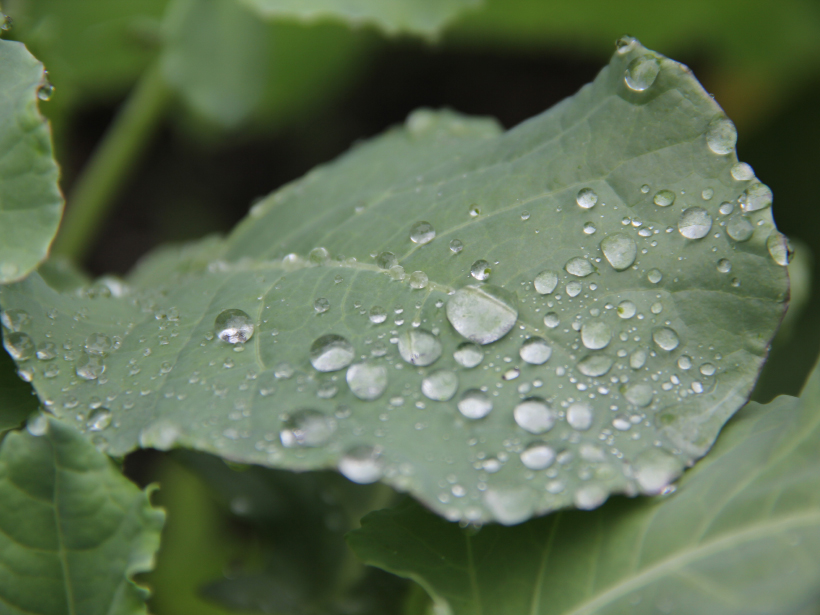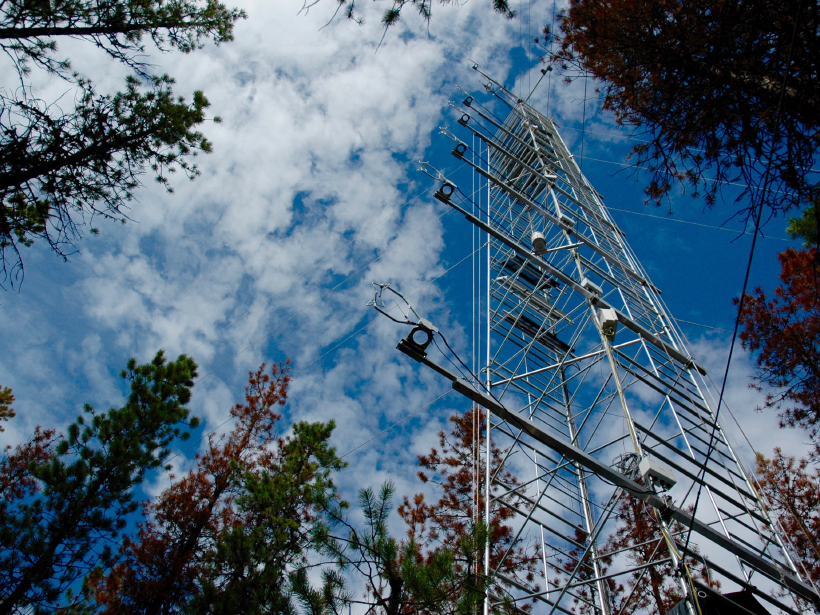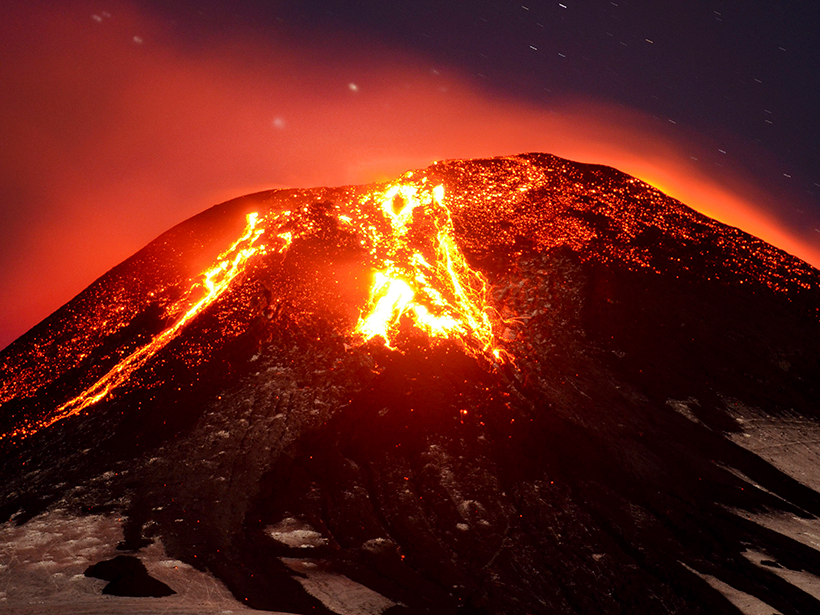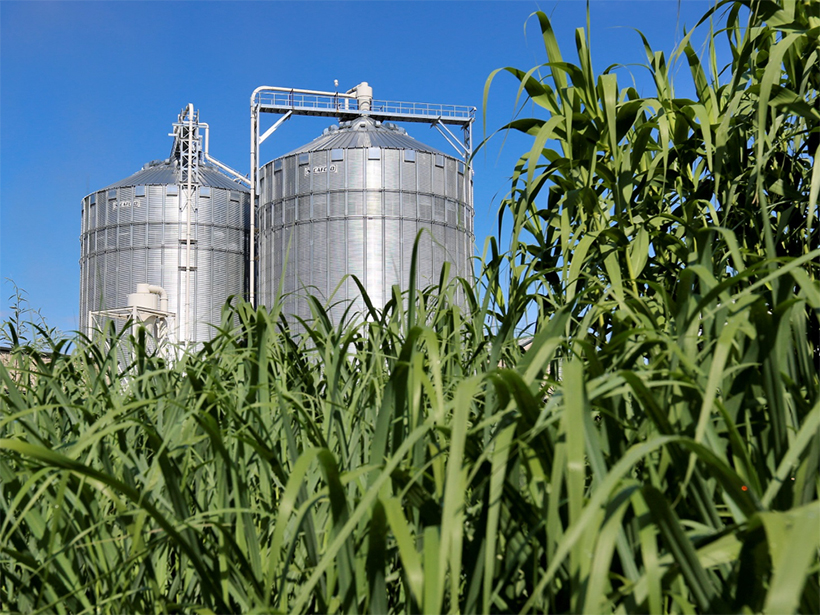Study investigates how deforestation can cause different land surface temperature effects depending on the time of day.
Research Spotlights
Research spotlights are plain-language summaries of recent articles published in AGU’s suite of 24 journals.
Lab Experiments Show How Fault Surfaces Get Groovy
Formation of nanometer-scale quartz beads could promote linear “slickenline” patterns and facilitate fault movement.
How Will Climate Change Affect the California Current Upwelling?
The results of new simulations that account for internal climate variability contrast with previous projections of how this vital West Coast current will respond to anthropogenic warming.
Lab Tests Probe Carbon Planets’ Inner Dynamics
Thermal convection in deep interiors could be more vigorous in carbide planets than in comparably sized silicate planets, according to new high-pressure measurements of silicon carbide.
Shedding Light on Intermittent Rainfall
A study provides a new modeling method to simulate rain when it pours and when it doesn’t.
Global Atmospheric Observations May Need Tweaking for Turbulence
A new study that overturns an 80-year-old assumption about atmospheric turbulence may finally resolve discrepancies in observations of atmospheric heat, water vapor, and carbon.
The Future of Earth Looks Drier…but Just How Dry?
New analysis of soil moisture projections from climate models could help resolve a discrepancy between expected increases in aridity and precipitation over land.
Can Volcanic Gas Levels Predict an Eruption?
Researchers test whether the changing composition of volcanic gas can signal a coming eruption in Chile’s Villarrica volcano.
Removing Carbon from the Ground Up
Massive plantations for storing carbon and growing biofuel won’t achieve the Paris Agreement’s “2-degree guardrail,” but they could help.
Impacts of “Bomb” Cyclones Reach the Ocean Floor
Japanese researchers study explosive cyclones with models to simulate decades of ocean circulation data.

